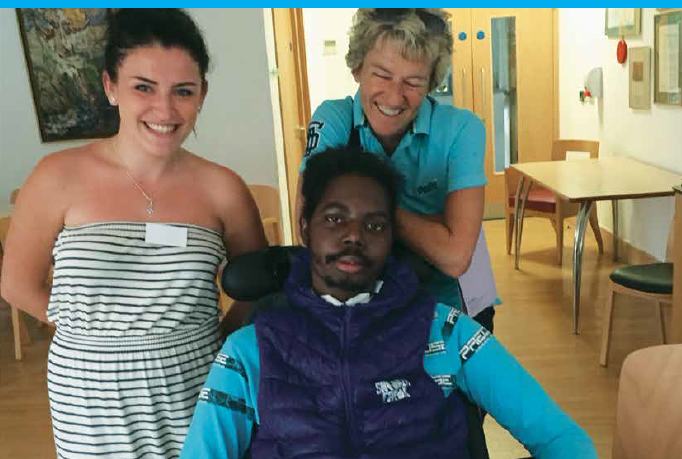Assistance for supporting young people with life-threatening or life-limiting conditions who want to explore their sexuality and develop relationships is offered to practitioners in a new comprehensive OU-published guide in partnership with the charity Together for Short Lives.
The publication, launched this week, gives guidance and standards for health, social care and education practitioners who support young people with life-limiting and life-threatening conditions (LLTCs). Talking about Sex, Sexuality and Relationships: Guidance and Standards is published by The Open University in partnership with UK children’s palliative care charity Together for Short Lives and the OU Sexuality Alliance.
The guide has been developed with young people, local and national organisations, to help break down taboos around disabled young people and sexuality and to help professionals develop communication skills and confidence in exploring sexuality for these young people both safely and legally. The guidance aims to boost the confidence of practitioners in talking to young people about intimacy and their sexuality and help organisations to provide robust governance and better understand the legal framework. Importantly it encourages organisations to provide training so practitioners are equipped to support young people to explore their sexuality safely and legally.
More than 25 young people with LLTCs contributed to the report. Two of the young people, Hameed Jimoh (Junior) and Lucy Watts jointly wrote the report’s foreword. They said:
“Yes, talking about sex, intimacy and providing practical support for young people like us can be challenging, but such discussions shouldn’t be ignored and swept under the carpet. Staff just need training and support.”
Lead co-author Dr Sarah Earle, Associate Dean Research, on behalf of The Open University, said: “Young people with LLTCs have the right to experience intimacy and to give and receive pleasure, whether that means being able to hold hands, fall in love, or enjoy sexual expression in all its forms. We have developed this guidance to ensure that this right can be realised by all young people.”
Lizzie Chambers, development director, Together for Short Lives, said: “The growing number of young people now living into adulthood with life-limiting conditions means that professionals can no longer ignore their right to sexual expression. After all it’s just a normal part of growing up and being an adult. “I hope this new guide will give professionals the confidence to be able to talk to young people about their sexuality and that this will in turn empower young people to have relationships and have a good sex life if that is what they want.”
Photo by amslerPIX 



